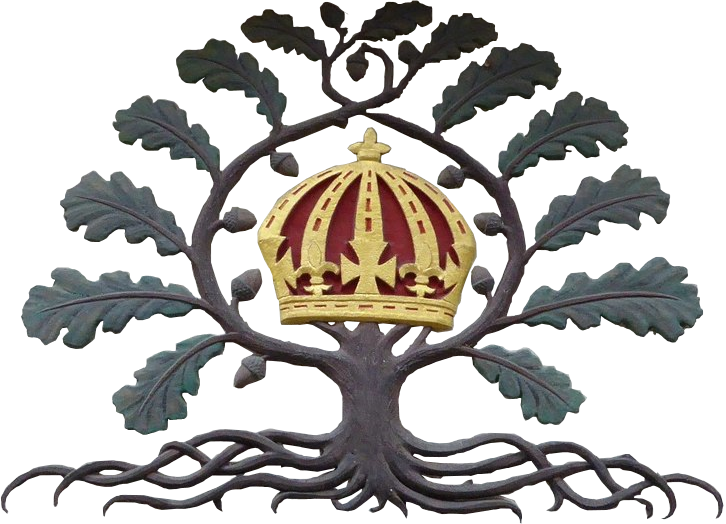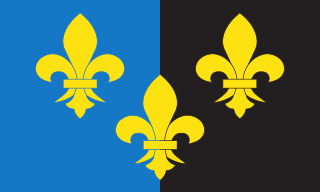
The 1831 United Kingdom general election saw a landslide win by supporters of electoral reform, which was the major election issue. As a result, it was the last unreformed election, as the Parliament which resulted ensured the passage of the Reform Act 1832. Polling was held from 28 April to 1 June 1831. The Whigs won a majority of 136 over the Tories, which was as near to a landslide as the unreformed electoral system could deliver. As the Government obtained a dissolution of Parliament once the new electoral system had been enacted, the resulting Parliament was a short one and there was another election the following year. The election was the first since 1715 to see a victory by a party previously in minority.

The 1830 United Kingdom general election was triggered by the death of King George IV and produced the first parliament of the reign of his successor, William IV. Fought in the aftermath of the Swing Riots, it saw electoral reform become a major election issue. Polling took place in July and August and the Tories won a plurality over the Whigs, but division among Tory MPs allowed Earl Grey to form an effective government and take the question of electoral reform to the country the following year.

The 1826 United Kingdom general election saw the Tories under the Earl of Liverpool win a substantial and increased majority over the Whigs. In Ireland, Home Rule candidates, working with the Whigs, won large gains from Unionist candidates.

The 1820 United Kingdom general election was triggered by the death of King George III and produced the first parliament of the reign of his successor, George IV. It was held shortly after the Radical War in Scotland and the Cato Street Conspiracy. In this atmosphere, the Tories under the Earl of Liverpool were able to win a substantial majority over the Whigs.

The 1818 United Kingdom general election saw the Whigs gain a few seats, but the Tories under the Earl of Liverpool retained a majority of around 90 seats. The Whigs were divided over their response to growing social unrest and the introduction of the Corn Laws.

The 1802 United Kingdom general election was the election to the House of Commons of the second Parliament of the United Kingdom. It was the first to be held after the Union of Great Britain and Ireland. The first Parliament had been composed of members of the former Parliaments of the Kingdom of Great Britain and the Kingdom of Ireland.

The 1806 United Kingdom general election was the election of members to the 3rd Parliament of the United Kingdom. This was the second general election to be held after the Union of Great Britain and Ireland.

The 1807 United Kingdom general election was the third general election to be held after the Union of Great Britain and Ireland.

The 1812 United Kingdom general election was the fourth general election to be held after the Union of Great Britain and Ireland.

In the first Parliament to be held after the Union of Great Britain and Ireland on 1 January 1801, the first House of Commons of the United Kingdom was composed of all 558 members of the former Parliament of Great Britain and 100 of the members of the House of Commons of Ireland.

The 1790 British general election returned members to serve in the House of Commons of the 17th Parliament of Great Britain to be summoned after the merger of the Parliament of England and the Parliament of Scotland in 1707.

The 1780 British general election returned members to serve in the House of Commons of the 15th Parliament of Great Britain to be summoned after the merger of the Parliament of England and the Parliament of Scotland in 1707. The election was held during the American War of Independence and returned Lord North to form a new government with a small and rocky majority. The opposition consisted largely of the Rockingham Whigs, the Whig faction led by the Marquess of Rockingham. North's opponents referred to his supporters as Tories, but no Tory party existed at the time and his supporters rejected the label.

The 1774 British general election returned members to serve in the House of Commons of the 14th Parliament of Great Britain to be held, after the merger of the Parliament of England and the Parliament of Scotland in 1707. Lord North's government was returned with a large majority. The opposition consisted of factions supporting the Marquess of Rockingham and the Earl of Chatham, both of whom referred to themselves as Whigs. North's opponents referred to his supporters as Tories, but no Tory party existed at the time and his supporters rejected the label.

The 1768 British general election returned members to serve in the House of Commons of the 13th Parliament of Great Britain to be held, after the merger of the Parliament of England and the Parliament of Scotland in 1707.

The 1747 British general election returned members to serve in the House of Commons of the 10th Parliament of Great Britain to be summoned, after the merger of the Parliament of England and the Parliament of Scotland in 1707. The election saw Henry Pelham's Whig government increase its majority and the Tories continue their decline. By 1747, thirty years of Whig oligarchy and systematic corruption had weakened party ties substantially; despite the fact that Walpole, the main reason for the split that led to the creation of the Patriot Whig faction, had resigned, there were still almost as many Whigs in opposition to the ministry as there were Tories, and the real struggle for power was between various feuding factions of Whig aristocrats rather than between the old parties. The Tories had become an irrelevant group of country gentlemen who had resigned themselves to permanent opposition.

The 1734 British general election returned members to serve in the House of Commons of the 8th Parliament of Great Britain to be summoned, after the merger of the Parliament of England and the Parliament of Scotland in 1707. Robert Walpole's increasingly unpopular Whig government lost ground to the Tories and the opposition Whigs, but still had a secure majority in the House of Commons. The Patriot Whigs were joined in opposition by a group of Whig members led by Lord Cobham known as the Cobhamites, or 'Cobham's Cubs'

The 1727 British general election returned members to serve in the House of Commons of the 7th Parliament of Great Britain to be summoned, after the merger of the Parliament of England and the Parliament of Scotland in 1707. The election was triggered by the death of King George I; at the time, it was the convention to hold new elections following the succession of a new monarch. The Tories, led in the House of Commons by William Wyndham, and under the direction of Bolingbroke, who had returned to the country in 1723 after being pardoned for his role in the Jacobite rising of 1715, lost further ground to the Whigs, rendering them ineffectual and largely irrelevant to practical politics. A group known as the Patriot Whigs, led by William Pulteney, who were disenchanted with Walpole's government and believed he was betraying Whig principles, had been formed prior to the election. Bolingbroke and Pulteney had not expected the next election to occur until 1729, and were consequently caught unprepared and failed to make any gains against the government party.

The 1715 British general election returned members to serve in the House of Commons of the 5th Parliament of Great Britain to be held, after the merger of the Parliament of England and the Parliament of Scotland in 1707. In October 1714, soon after George I had arrived in London after ascending to the throne, he dismissed the Tory cabinet and replaced it with one almost entirely composed of Whigs, as they were responsible for securing his succession. The election of 1715 saw the Whigs win an overwhelming majority in the House of Commons, and afterwards virtually all Tories in central or local government were purged, leading to a period of Whig ascendancy lasting almost fifty years during which Tories were almost entirely excluded from office.

The 1713 British general election produced further gains for the governing Tory party. Since 1710 Robert Harley had led a government appointed after the downfall of the Whig Junto, attempting to pursue a moderate and non-controversial policy, but had increasingly struggled to deal with the extreme Tory backbenchers who were frustrated by the lack of support for anti-dissenter legislation. The government remained popular with the electorate, however, having helped to end the War of the Spanish Succession and agreeing on the Treaty of Utrecht. The Tories consequently made further gains against the Whigs, making Harley's job even more difficult. Contests were held in 94 constituencies in England and Wales, some 35 per cent of the total, reflecting a decline in partisan tension and the Whigs' belief that they were unlikely to win anyway.

The 1708 British general election was the first general election to be held after the Acts of Union had united the Parliaments of England and Scotland.






















